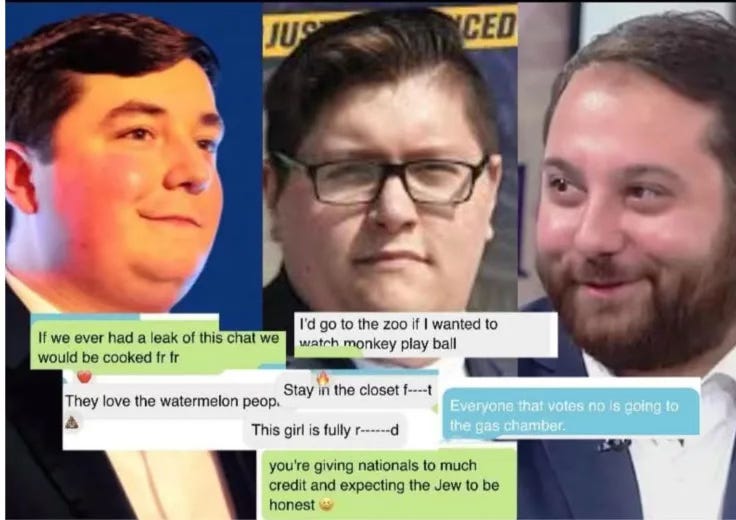The United States of Amnesia: On the Tedious Predictability of Republican Racism
The Poison in the Pipeline: Inside the Young Republicans Scandal That Exposed the GOP’s Rotting Core
Let’s not pretend to be shocked. When Politico dropped 3,000 pages of Telegram messages showing Young Republican leaders across four states spending seven months trading Hitler tributes, calling Black Americans “monkeys” and “the watermelon people,” and workshopping gas chamber fantasies, the only people genuinely surprised were those who haven’t been paying attention. And in American politics, not paying attention is practically a job requirement.
These weren’t drunken freshmen scrawling slurs on bathroom walls. These were adults in their twenties and thirties—campaign operatives, government staffers, an elected state senator—systematically dehumanizing entire categories of human beings with the casual efficiency of people ordering lunch. Over 28,000 messages. The N-word used dozens of times. References to “1488,” the white supremacist shorthand for “Heil Hitler.” Jokes about rape, slavery, and driving political enemies to suicide. This is the Republican Party’s farm system, and busin…



